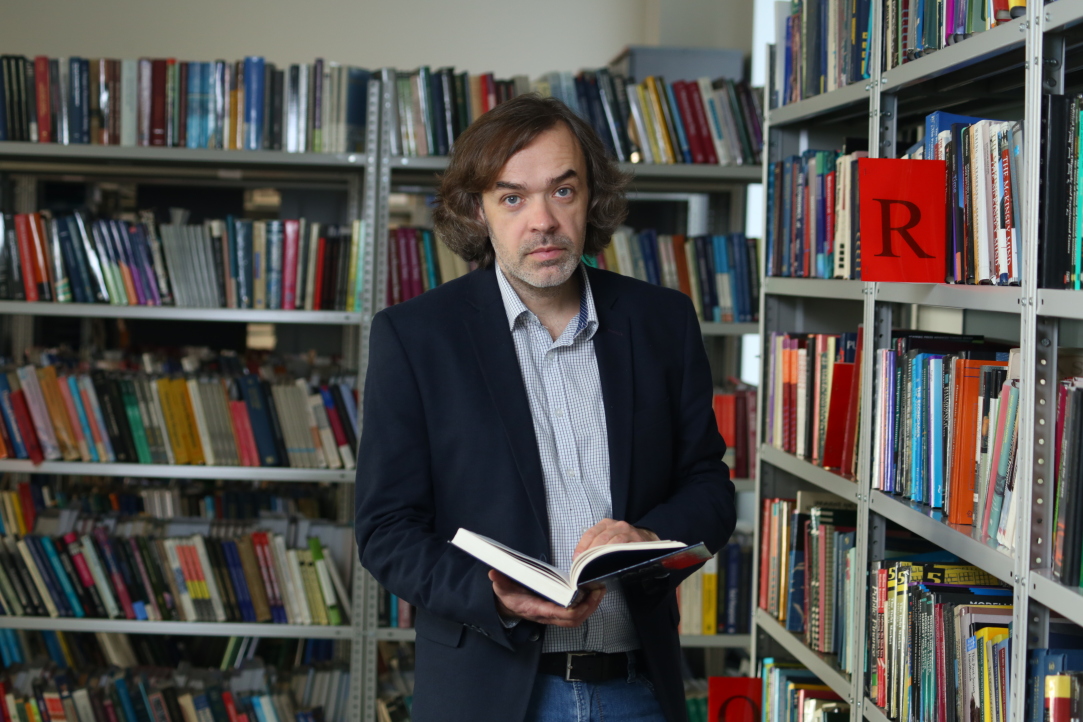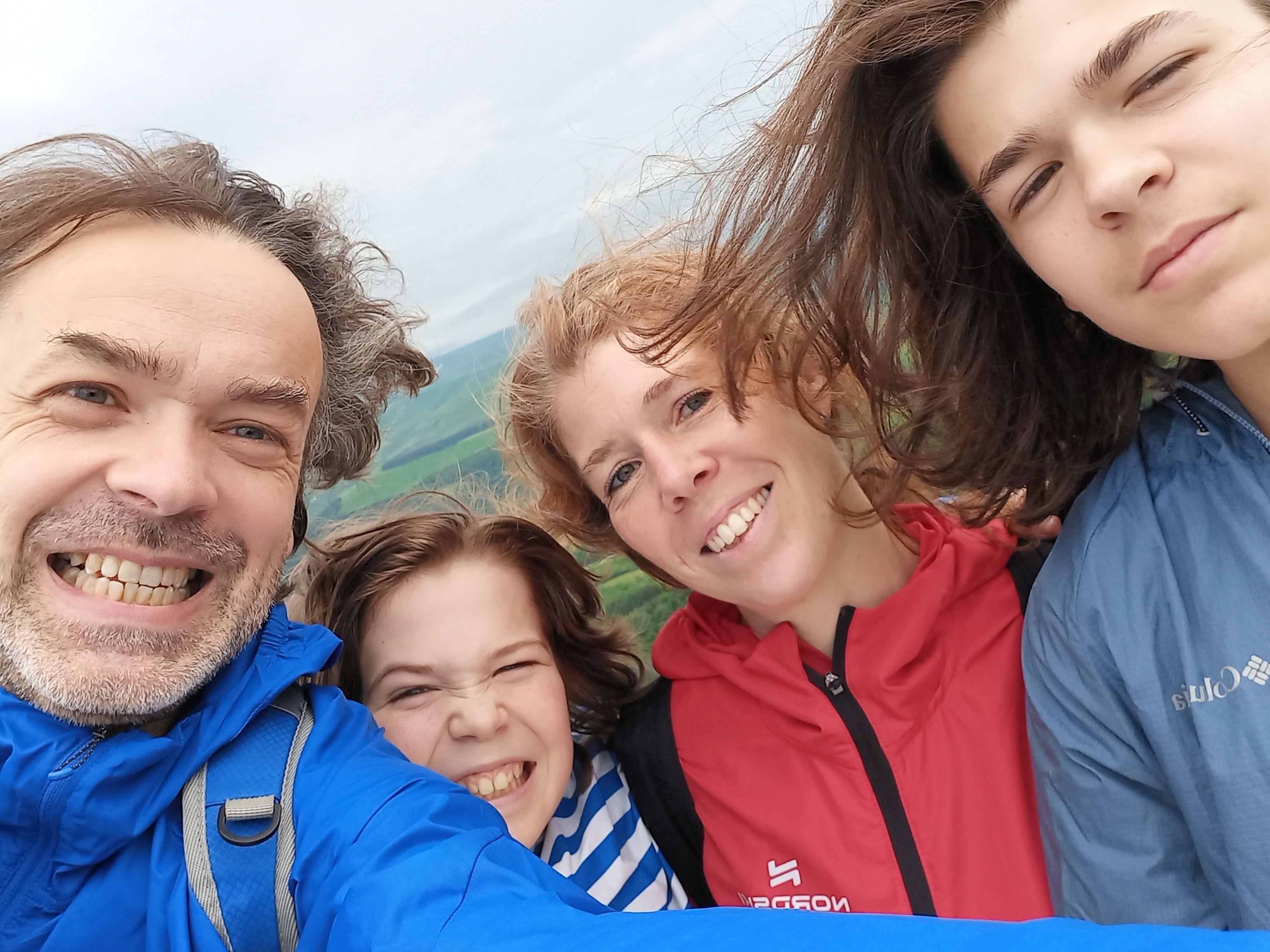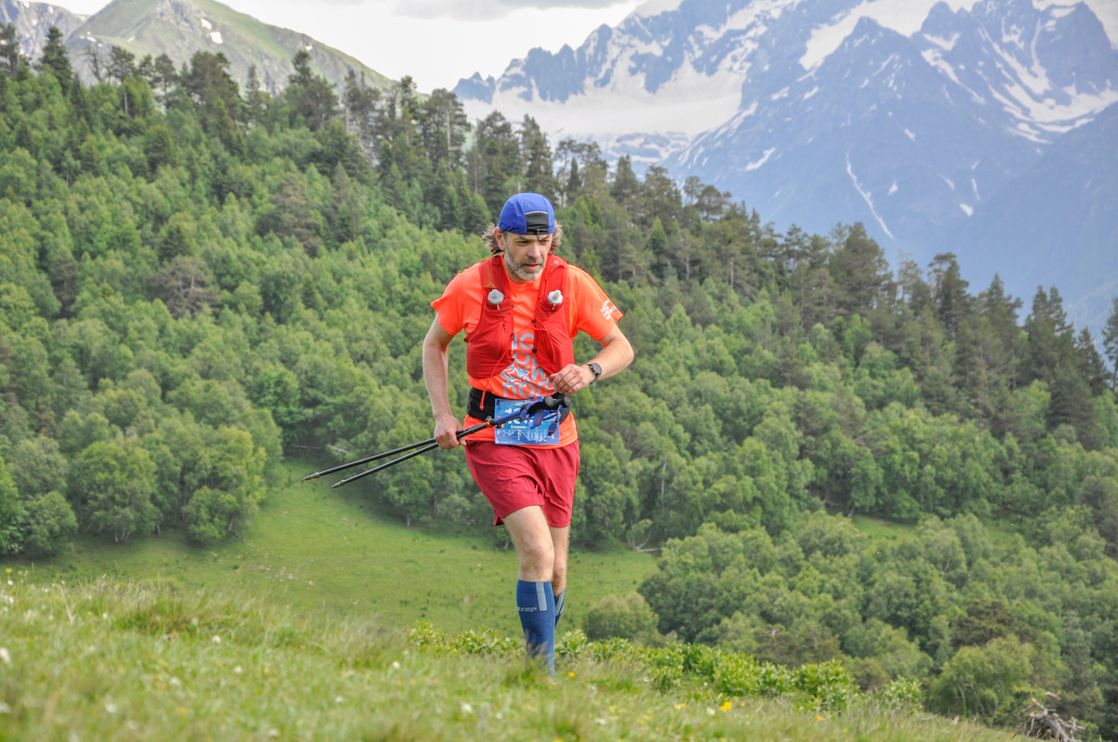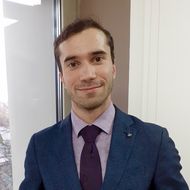- A
- A
- A
- ABC
- ABC
- ABC
- А
- А
- А
- А
- А
- HSE University
- Faculties
- Faculty of Economic Sciences
- School of Finance
- News
- ‘I Don't Even Know What I Like More: Running or Working’
-
The School
-
RESEARCH ACTIVITIES
- Laboratories
- Series “Advanced studies in emerging market’s finance” at Springer Nature o Networking with international academic associations
- Networking with international academic associations
- Research seminars
- International PhD workshop
- The International Seminar «ESG Transformation»
-
RESEARCH WORKING GROUPS
- Research Working Group "Innovations in the banking sector, its financial stability and prudential regulation"
- BUSINESS EDUCATION
- Networking with business associations
- Networking with professional associations
- Center for Research on Non-Financial Reporting
-
DATABASES
119049 Moscow, Russia
11 Pokrovskiy boulevard, room S629
Phone:
+7 (495) 772-95-90*27447, *27947, *27190
+7 (495) 916-88-08 (Master’s Programme Corporate Finance)
- Email: df@hse.ru
Head of Corporate Finance Research Center, Dr., tenured professor

+7495-772-95-90 (add. 27447)

+7495-772-95-90 (add. 27947)
The HSE School of Finance is the leading Russian competence center in the field of corporate finance, business valuation, banking, stock market, risk management and insurance, accounting and audit.
HSE is the first Russian university in the global ranking "QS - World University Rankings by subject", 2022 in the subject area of Accounting and Finance. Moreover, the university is the 1-st in the rating "THE World University Rankings by subject" in the subject area of Business & Management Studies, 2022
Cherkasova V. A., Nenuzhenko I.
Journal of Economic Integration. 2022. Vol. 37. No. 1. P. 54-92.
Electronic Journal of Applied Statistical Analysis. 2022. Vol. 15. No. 1. P. 187-210.
Kolade S. A., Semenova M.
Financial Economics. FE. Высшая школа экономики, 2022. No. WP BRP 87/FE/2022.
Управление финансовыми рисками. 2022. Т. 70. № 2. С. 108-120.
In bk.: The 8th International Conference on Information Technology and Quantitative Management (ITQM 2020 & 2021): Developing Global Digital Economy after COVID-19. Vol. 199: The 8th International Conference on Information Technology and Quantitative Management (ITQM 2020 & 2021): Developing Global Digital Economy after COVID-19. Manchester: Elsevier, 2022. P. 798-805.
Korablev D., Poduhovich D.
Journal of Corporate Finance Research. 2022. Vol. 16. No. 1. P. 136-145.
Olkhovik V., Lyutova O. I., Juchnevicius E.
Научно-исследовательский финансовый институт. Финансовый журнал. 2022. Vol. 14. No. 2. P. 73-90.
Churyk N. T., Anna Vysotskaya, Kolk B. v.
Journal of Accounting Education. 2022. Vol. 58.
Абдрахманова Г. И., Васильковский С. А., Вишневский К. О. и др.
М.: Издательский дом ГУ-ВШЭ, 2022.
Абдрахманова Г. И., Васильковский С. А., Вишневский К. О. и др.
М.: Национальный исследовательский университет "Высшая школа экономики", 2022.
Гришунин С. В., Сулоева С. Б., Пищалкина И. И.
Организатор производства. 2022. Т. 30. № 1. С. 60-72.
Гришунин С. В., Сулоева С. Б., Пищалкина И. И.
Экономический анализ: теория и практика. 2022. Т. 21. № 3. С. 478-496.
S. Grishunin, E. Naumova, N. Lukshina et al.
Russian Management Journal. 2021. Vol. 19. No. 4. P. 475-493.
Journal of Corporate Finance Research. 2022. Vol. 16. No. 1. P. 99-112.
Grishunin S., Bukreeva Alesya, Alyona A.
In bk.: The 8th International Conference on Information Technology and Quantitative Management (ITQM 2020 & 2021): Developing Global Digital Economy after COVID-19. Vol. 199: The 8th International Conference on Information Technology and Quantitative Management (ITQM 2020 & 2021): Developing Global Digital Economy after COVID-19. Manchester: Elsevier, 2022. P. 190-197.
 International Conference “Future Directions in Accounting and Finance Education”, 27-28 May 2019, Moscow, Russia
International Conference “Future Directions in Accounting and Finance Education”, 27-28 May 2019, Moscow, Russia
Edited by: А. Б. Высотская, B. v. Kolk.
Vol. 58. Elsevier, 2022.
Karamysheva M., Seregina E.
Journal of International Money and Finance. 2022. Vol. 127.
In press
Journal of Economic Dynamics and Control. 2022. Vol. 137.
Karamysheva M., Skrobotov A.
Journal of Economic Dynamics and Control. 2022. Vol. 138.
Известия Санкт-Петербургского государственного экономического университета. 2022. № 4. С. 144-155.
Тихомиров Д. В., Цехомский Н. В.
Экономика и управление. 2022. Т. 28. № 1. С. 16-24.
Селезнёва З. В., Евдокимова М. С.
Финансы: теория и практика. 2022. Т. 26. № 3. С. 64-84.
Evdokimova M., Stepanova A. N.
In bk.: 38th EBES Conference - Program and Abstract Book. Istanbul: EBES, 2022. P. 39.
Assanskiy A., Shaposhnikov D., Tylkin I. et al.
Journal of Behavioral and Experimental Economics. 2022. Vol. 98.
Teplova T., Mikova E., Munir Q. et al.
Economic Change and Restructuring. 2023. Vol. 56. No. 1. P. 515-535.
Повх К. С., Кокорева М. С., Степанова А. Н.
Экономический журнал Высшей школы экономики. 2022. Т. 26. № 1. С. 9-36.
Anton Markov, Zinaida Seleznyova, Victor Lapshin.
Journal of Finance and Data Science. 2022. Vol. 8. P. 180-201.

‘I Don't Even Know What I Like More: Running or Working’

Sergey Stepanov is an Associate Professor at ICEF and the School of Finance. He is also the Academic Supervisor of the HSE/NES Programme in Economics, a joint programme that teaches students fundamental knowledge of economics, modern methods of economic analysis, and mathematical methods for solving economic tasks. Sergey spoke to Olga Krylova about the joint programme, his research work with colleagues and students, and his second big passion—running.
— Tell us about your work as Academic Supervisor of the HSE/NES Programme in Economics.
— Irina Denisova (the Academic Supervisor from NES) and I are responsible for the content of the academic programme. This involves selecting courses that correspond to the essence of the programme as conceived by its founders while maintaining the high quality of teaching.
Irina and I also monitor how students interact with instructors. It’s necessary to make sure that both parties are happy. From time to time (and especially now) we have new instructors. We talk to them about the features our programme and what needs to be taken into account when working with our students. At the end of the semester, we analyse the results of the student survey and discuss everything with the instructors.
I talk to students about their individual trajectories, recommend the best courses to take to achieve their goals, and approve individual curricula for those who are going to study on exchange programmes
We also monitor the interactions between students and supervisors at the thesis-writing stage. When I say ‘we’, I mean not only Irina and I, but also our wonderful Study Office: Ekaterina Antonova, Lyudmila Medvedeva and Natalia Petrova. Without them, we would not have survived.
Finally, I try to promote the HSE/NES Programme in Economics to attract applicants, for example, by giving educational lectures at schools or meeting with applicants and parents.
— How did you become an economist? Was it difficult to change your career and enter the NES Master's programme in Economics after getting an Aeronautical Engineering degree?
— Looking back, I think it was difficult because it was a completely different time.
It's great that now there are good undergraduate programmes in economics where you can start studying economics from the very beginning
When I graduated in 1998, the main challenge for many applicants to NES was the turning point in the transition from a degree in another field to a master's programme in economics. It was easier for those who studied at the Faculty of Mechanics and Mathematics at Moscow State University or at Moscow Institute of Physics and Technology (MIPT), because they had a better background in mathematics, but I had to learn a lot of new things; before NES, I had no background in probability theory or statistics. I never studied optimisation theory at Moscow Aviation Institute either. So I first encountered all this on the NES master's programme. Thus, my transition to economics was difficult, but it happened.
— How did your path in economics continue after the master's degree?
— After my master's degree, I immediately went to get my PhD at Vrije Universiteit Brussel. I was mainly attracted to this university by the European Center for Advanced Research in Economics and Statistics (ECARES), a small research centre created by such stars of economics as Mathias Dewatripont and Philippe Weil.
I don't regret at all that I went to Brussels. After all, I met my future wife there. And maybe if I had stayed, I wouldn't have regretted it either. Nobody knows how these counterfactuals work.
— In which language were the courses taught?
— I studied in English, but I also learned some French as a side effect of living in Belgium and the fact that my wife is Belgian. Although, I confess that my knowledge of French is so-so, and I have never seriously studied it. We had an international community where we communicated in English, so there was no need to learn French, and I was too lazy to learn it for self-development.

— Does your wife speak Russian?
— Yes, she had to learn Russian. When we lived in Belgium, we communicated mainly in English. But when we moved to Moscow, she learned Russian. She loves Russian, although, of course, it is complicated. However, in Moscow it is hard to live without a knowledge of Russian. On the other hand, many foreign HSE professors live without any problems in the capital with a basic knowledge of Russian.
— Which research topics are you interested in?
— I like studies about conflicts of interest between people and agents who don't have the same information, ie where there is information asymmetry. I am interested in finding institutions that can be used to overcome such difficulties.
For example, I have several works with Emiliano Catonini, who previously worked at ICEF and now works at NYU Shanghai. One of our works answers such an applied question. Imagine that you are a decision maker, but you do not have enough information, so you ask experts who have the necessary information (Catonini et al., 2019). Our main example was a journal editor. An article for publication is sent to the editor, who needs to make a decision. They have a pool of referees and seek advice from several of them. These experts write referee reports. In the article we raise the question: is it necessary to receive information from each expert independently, so that they do not talk to each other and do not know about each other at all, or is it necessary to give the experts an opportunity to talk before they tell the decision maker something?
In reality, referees are not allowed to communicate with each other. But is that right? In our model, the main reason why experts may not want to tell the truth is that they care about their reputation. Referees may be sent an article written by a great scholar and believe that due to the author’s reputation, he or she could not write nonsense and the article should be accepted. Now imagine that the referee has some doubts or doesn't like something in the article. These doubts are not strong enough to outweigh the prior belief that the article is still good. If the referees care about their reputation, they may be afraid to express their doubts and may approve the publication. It is better to give the referees the opportunity to share doubts among themselves before expressing their opinion to the editor. On the other hand, if they are given the opportunity, they will not want to admit that they may have had different opinions about the article. And such information would also be important for the editor. In our work, we study just such a trade-off.
Referee reports are anonymous because otherwise, there could be corruption—you praised my article, then later I praise yours; you wrote a bad report on my work, then I discriminate against you or your students in journals. However, the anonymity of referees to the author does not prevent referees from being allowed to talk to each other.
— Have you written any articles with students?
— Yes, Emiliano Catonini is only one of the co-authors of the article which I just mentioned. The second co-author is Andrey Kurbatov. He obtained his PhD from INSEAD, and this year he got a job at the Norwegian School of Economics in Bergen, which is a very good European school. Our article grew out of Andrey's bachelor's thesis. Andrey received a prize for the best thesis on the HSE/NES Programme in Economics. After that, of course, we developed his thesis, and it turned into an article, so I have a very positive experience with students. There have been cases when students’ theses have not been turned into articles, but led to some thoughts that serve as material for an article.
— Tell us about your work in corporate finance.
— I worked in corporate finance, however, not in empirics, but in theory, and I did it also from the point of view of the economics of information.
I wanted to go a little beyond the usual framework of corporate finance and look at more general things
The referee scenario can also be applied to a corporation in which the CEO asks for advice from colleagues. At the same time, I have students writing many empirical theses in corporate finance. For example, Alexander Belyakov, one of the first graduates of the HSE and NES Joint programme in Economics, wrote a purely empirical paper on corporate finance under my supervision, and then he studied for a PhD at the Wharton Business School. He successfully defended his thesis recently, and now works in consulting. This also shows that getting a PhD does not mean that you are connected to academic work forever. However, now it has become more difficult to do empirical research, because access to foreign databases has become much more complicated.
— Tell us about your article ‘Corporate Governance in Russia’.
— I have two survey articles on this topic. The first was published in 2009, and Ruben Enikolopov and I wrote the second one together in 2013. We described the state of corporate governance in Russian companies. Some people confuse corporate governance with management, but corporate governance includes all sorts of mechanisms that resolve conflicts of interest between stakeholders and managers of companies, between large and small stakeholders, between stakeholders and the state, between two large stakeholders, etc. All these conflicts negatively influence the company, the ability to attract funding, the effectiveness of decisions and so on. To minimise the negative impact, there are many different institutions both inside and outside the firm. These include a board of directors, a mechanism of hostile takeover, or a mechanism of managerial compensation that will motivate managers to do the right things instead of stealing money from the company. There are many other mechanisms as well. In the article, we simply reviewed the state of corporate governance in Russian companies, described the existing problems, their importance, and ways to solve them.
— What data did you use in the article?
— We reviewed earlier work, which was mostly written by other people who collected data and drew conclusions. In addition, we took data from analytical reports on Russian corporate governance compiled by various agencies such as Standard & Poor's.

— What do you do in your spare time?
— First, I have a wife and two children. Secondly, I run quite a lot. I really like it (fortunately, my wife does too, and the children don’t mind—the longer the parents run, the more time they have to play on the computer). I don't even know what I like more: running or working. It’s true that on a run, you can think about work, but it’s not always possible. You can also listen to podcasts on the go. In winter, I sometimes run in the arena in Krylatskoye, but mostly I run in parks, in the forest. I just like to run around the city, in the centre or along the embankment, for example. It's boring to run in one place, so I sometimes drive somewhere just to run there.
If I go somewhere for a conference or vacation, I always take sneakers with me
The most interesting thing is to run in an unfamiliar area, particularly in the countryside and especially when you get lost. You wanted to run for an hour, but you returned after two and a half hours. I also play the guitar, unprofessionally, as a hobby.
References:
- Catonini, E., Kurbatov, A., & Stepanov, S. (2019). Independent versus Collective Expertise. Available at SSRN 3394209
- Enikolopov, R., & Stepanov, S. (2013). Corporate governance in Russia
- Lazareva, O., Rachinsky, A., & Stepanov, S. (2009). A survey of corporate governance in Russia (pp. 315-349). Springer US
Interview and text by Olga Krylova, intern at the International Office of the Faculty of Economic Sciences, third-year student of the HSE and NES Joint Programme in Economics
- About
- About
- Key Figures & Facts
- Faculties & Departments
- International Partnerships
- Faculty & Staff
- HSE Buildings
- Public Enquiries
- Studies
- Admissions
- Programme Catalogue
- Undergraduate
- Graduate
- Exchange Programmes
- Summer University
- Summer Schools
- Semester in Moscow
- Business Internship
-
https://elearning.hse.ru/en/mooc/
Massive Open Online Courses
-
https://www.hse.ru/en/visual/
HSE Site for the Visually Impaired
-
http://5top100.com/
Russian Academic Excellence Project 5-100
- © HSE University 1993–2024 Contacts Copyright Privacy Policy Site Map
- Edit


